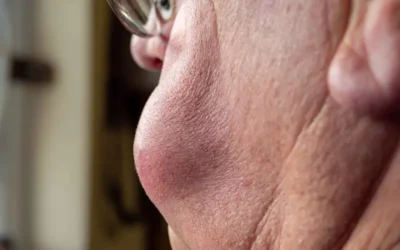According to the Centers of Medicare and Medicaid Services (CMS), A Medicare overpayment is defined as a payment received that is in excess of the amount actually payable under Medicare regulations. When Medicare identifies an overpayment, the amount that is overpaid becomes a debt that you owe to the Federal government. As per the Federal law, CMS is required to try and recover all identified overpayments. Healthcare practices aware of an overpayment that do not properly report and return it may invite civil monetary penalties. Practices should have a better knowledge of CMS Medicare overpayment collection process and how to respond to it to avoid penalties. They should remain vigilant of their Medicare billing and coding process.
Overpayment Collection Process
When Medicare identifies an overpayment of $25 or more (from July 2014), the Medicare Administrative Contractor (MAC) will initiate the overpayment recovery process by sending an initial demand letter that requests repayment. A second and third demand letter is mailed by the MAC 30 days after the most recent demand letter. The demand letter explains the following:
- Medicare made an overpayment
- Interest begins to accrue, if you do not pay the overpaid amount in full within 30 days
- Opportunity to request immediate recoupment or an Extended
- Repayment Schedule (ERS)
- Rebuttal/appeal rights
How to Respond to a Demand Letter
Here are the options for you to respond to the initial demand letter to avoid penalties.
- Immediate Payment – Once the letter is received and you are convinced about the overpayment, you can choose the option to pay the money immediately. You can submit the payment by following the instructions in the demand letter.
- Request Immediate Recoupment – Recoupment occurs when Medicare recovers the overpaid amount either from current payments due or from future claims submitted. The withholding of interim payments may be partial (withholding of a percentage of payments or a set amount) or complete. You can follow the directions in the demand letter to request your MAC to begin this recoupment.
- Request the Standard Recoupment Process – There is nothing you need to do when requesting the standard recoupment process. Your MAC will begin recoupment automatically for overpayments not subject to Limitation on Recoupment or in an excluded category on the sixteenth day after the day on which the demand letter is sent to you. The interest may accrue according to this schedule.
- Request an Electronic Repayment Schedule (ERS) – If it is not possible to pay the overpaid amount in full within the stipulated timeframe, you can contact your MAC and request for ERS. The directions given in the demand letter can help you to request an ERS.
- Rebuttal – A rebuttal statement can be submitted to your MAC within 15 calendar days from the date of a demand letter. In that statement, you can explain or provide evidence regarding why the MAC should not initiate recoupment. Though the rebuttal process is not considered as an appeal and won’t stop recoupment activities, the MAC will promptly evaluate this information.
- Appeal – If you disagree with an overpayment, you can send appeal letters to your MAC for conducting an independent review of the decision. Five levels are there in the Medicare Part A and Part B appeal process such as:
- Redetermination by a MAC
- Reconsideration by a Qualified Independent Contractor (QIC)
- Hearing by an Administrative Law Judge (ALJ) in the Office of Medicare Hearings and Appeals
- Review by the Medicare Appeals Council
- Judicial Review in Federal District Court
A redetermination is the first level of appeals. In this level, a qualified employee of the MAC conducts an independent review of the decision. In case of an unfavorable or partially favorable redetermination decision, you can request a second level appeal or reconsideration by a QIC.
There are some limitations on the recoupment of Medicare overpayments under the Social Security Act. As per the Act, when a valid first or second level appeal is received on an overpayment, subject to certain limitations, it is not possible for CMS and MACs to recoup the overpayment until taking a decision on the redetermination and/or reconsideration.
Major Reasons for Overpayment
As per the CMS, there are primarily four reasons for overpayment in Medicare such as:
- Duplicate submission of the same medical service or claim
- Providing and billing for excessive or non-covered services
- Payment for excluded or medically-unnecessary services
- Payment to the incorrect payee
Healthcare practices should be very careful about documentation so that no service is reported twice. Medical coders should also ensure that the codes are assigned appropriately. Practices should make sure that the services they provide to patients are covered before billing them with insurance verification and that the services provided are medically necessary before submitting the claims. If all these details are thoroughly verified, they can take appropriate steps when receiving a demand letter and avoid penalties. In most cases, it is difficult for practices to balance their time between managing medical claims and patient care. In such cases, a professional billing and coding company can provide the required medical billing services.




